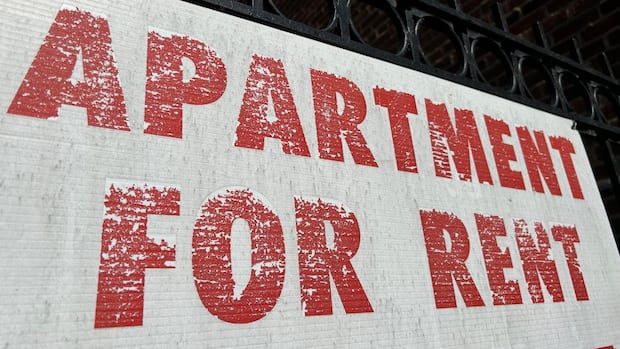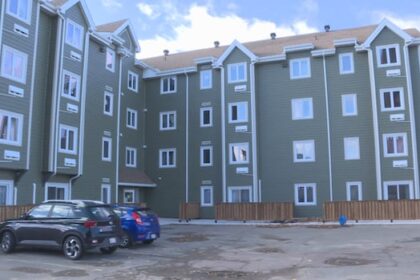PEIA new report shows Prince Edward Islanders making minimum wage had to work 75 hours a month to afford their rent last year, at least if they were living in a two-bedroom apartment in Charlottetown, Cornwall or Stratford.Workers needed to earn $19-$23 an hour to afford rental accommodations in 2024Thinh Nguyen · CBC News · Posted: Sep 27, 2025 5:00 AM EDT | Last Updated: 1 hour agoCharlottetown renter Meghan Dewar says housing in the province does not appear to be affordable, especially for students or people earning minimum wage. (Submitted by Meghan Dewar)For Meghan Dewar, renting in Charlottetown feels manageable — at least for now.She lives in a one-bedroom, all-inclusive apartment at a price she can afford as a working professional.But after several years living on Prince Edward Island, Dewar said housing in the province is far from affordable.Even her own apartment, she noted, would have been out of reach with the minimum-wage jobs she’s had in the past.”I don’t feel that it’s that attainable,” Dewar told CBC News. “For your average… student or average person working minimum wage, it is not doable.”Affordability gapA new report backs up Dewar’s concerns.It shows renters earning minimum wage would have needed to work about 75 hours per month last year to afford a two-bedroom apartment on P.E.I.The report updates rental wage figures for 2024 based on the Canada Mortgage and Housing Corporation’s annual rental survey, with analysis from the Canadian Centre for Policy Alternatives (CCPA).It looks at affordability across Canada, and focuses on Charlottetown, Cornwall and Stratford in P.E.I. The data covers apartment buildings only, not single-family homes.David Macdonald, a senior economist with the Canadian Centre for Policy Alternatives, says the hourly wage needed to afford a one or two-bedroom apartment in P.E.I. is higher than the province’s current minimum wage. (Canadian Centre for Policy Alternatives)According to CCPA, the rental wage is the hourly wage needed to afford rent while working a standard 40-hour week, assuming 30 per cent of gross income goes toward housing — a commonly used benchmark for affordability in Canada.”So if you’re looking for a two-bedroom apartment, you’d need $23 an hour, and if you were looking for a one-bedroom apartment, you would need $19 an hour,” said David Macdonald, one of the organization’s senior economists who co-authored the report.”Both of those are above $16 an hour, which was the minimum wage for Prince Edward Island in 2024.”While Macdonald noted slight variations among the three municipalities — Cornwall being slightly more expensive, Stratford somewhat less so, and Charlottetown in the middle — the differences aren’t substantial.”In any event, it would cost you for a two-bedroom apartment between $20 and $25 an hour to afford a two-bedroom apartment in any of those centres,” he said.He added that while P.E.I.’s minimum wage has increased from $13.70 three years ago to $16 an hour now, and will go up again to $16.50 on Oct. 1, that doesn’t necessarily mean workers are better off.If rents in some municipalities rise at the same rate or faster than wages, any extra income goes to landlords. The report shows this is the case for Charlottetown and Cornwall, but not Stratford, Macdonald said.It also notes that while the 2024 figure of 75 working hours per month at minimum wage is still high, it has actually decreased slightly over the years — down from 78 hours in 2018.More non-profit units neededMacdonald said P.E.I.’s rent control measures help protect affordability in the short term since they limit how much landlords can raise rents. Some provinces lack such rules or have weaker ones riddled with loopholes.Macdonald says the government should push for more non-profit rental housing because these units are designed to cover the organizations’ costs rather than maximize profits, which can help lower the average cost of rent and provide a long-term solution to affordability issues. (Josh Crabb/CBC)But in the long run, he said, the real solution is building more affordable rental housing outside of the private sector. “What we need is more units that are in the non-profit sectors. Their goal is not maximizing profit, it’s not extracting as much rent as they can out of tenants, but is rather to pay their own bills, and that’s about it,” Macdonald said.”If you just leave developers to their own devices, they may build more units, but they’ll often be luxury. And so that can actually increase the average rent costs.”With files from Jackie Sharkey
Renting an apartment on P.E.I. requires wages well above minimum, new report shows











